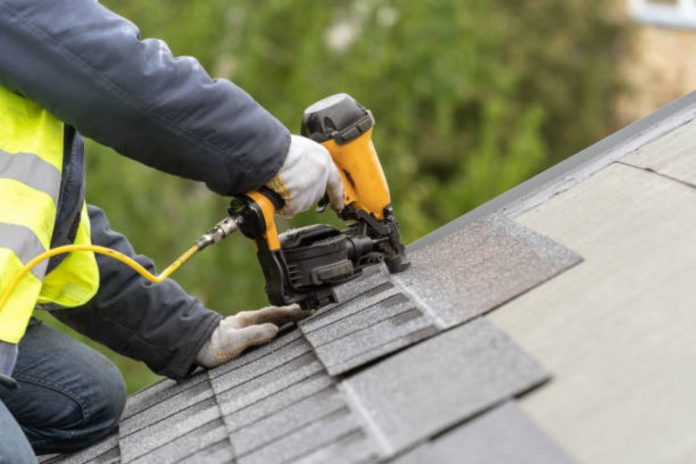When you’re planning to install a roof on a commercial building, it’s a big decision that requires thoughtful consideration. Whether it’s a new construction or a roof replacement, commercial roof installation can significantly impact your business. A high-quality roof will not only protect your building but can also improve energy efficiency, save money on repairs, and even enhance your property’s value.
Here’s everything you need to know about commercial roof installation before getting started.
1. Understand Your Building’s Needs
The first step in commercial roof installation is understanding your building’s specific needs. Every building is unique, and the type of roof you install should match your structure’s design, location, and purpose. For example, buildings in areas with extreme weather conditions may need more durable materials like metal or a TPO (thermoplastic polyolefin) membrane, which is resistant to UV rays and chemicals.
Knowing your building’s needs helps you choose a roofing system that offers long-lasting performance and protection.
2. Know the Different Types of Commercial Roofs
There are several types of commercial roofing systems, and each has its pros and cons. Some of the most common options include:
- Built-Up Roofing (BUR): This type of roofing is made up of multiple layers of materials like tar and gravel. It’s known for durability and strong weather resistance, but it can be heavy.
- Metal Roofing: Metal roofs are highly durable, fire-resistant, and can last 40 to 60 years. However, they can be more expensive upfront than other roofing options.
- Modified Bitumen Roofing: This roofing system is similar to asphalt shingles and is made from rubber or plastic-based materials, making it flexible and water-resistant.
- Thermoplastic Roof Membranes (TPO and PVC): TPO roofs are great for energy efficiency and can reflect UV rays, keeping your building cooler during the hot months.
- Green Roofing: These eco-friendly roofs are covered with vegetation and can improve insulation, reduce stormwater runoff, and even create a relaxing space for employees.
Each type has its specific maintenance requirements, lifespan, and cost, so choose one that fits your building and budget.
3. Work with a Licensed Roofing Contractor
Hiring the right contractor for your commercial roof installation is crucial. A professional roofing contractor will have the experience and skills necessary to ensure the job is done right. Check for proper licenses, insurance, and reviews from other business owners. You don’t want to risk hiring an unlicensed contractor who could deliver poor workmanship or cut corners to save money.
Experienced contractors will also help you understand the local building codes, permits, and regulations required for your roof installation. They will ensure that your roof is up to code, saving you from potential fines or issues down the road.
4. Consider Energy Efficiency
Energy efficiency is an important factor in any commercial roof installation. Modern roofing systems offer solutions that can help regulate your building’s temperature, reducing the strain on your heating and cooling systems. For example, reflective roofing materials can help deflect sunlight, lowering your building’s cooling costs during summer.
Consider installing cool roofs or energy-efficient materials like white or light-colored TPO membranes, which can reflect more sunlight and absorb less heat. This will help your building maintain a consistent temperature, save on energy bills, and contribute to a more sustainable environment.
5. Budgeting for Commercial Roof Installation
Installing a new commercial roof is a significant investment, so it’s essential to have a clear budget. The total cost will depend on the size of your building, the type of roofing material, labor costs, and any additional features like insulation or drainage systems.
It’s smart to get multiple quotes from different contractors to compare pricing and services. However, don’t always go for the lowest bid. A higher-quality roofing material and expert installation may cost more upfront, but it will save you money in the long run through fewer repairs and a longer lifespan.
6. Plan for Maintenance and Inspections
Once your commercial roof is installed, the work isn’t over. Regular maintenance and inspections are essential to extend your roof’s lifespan. Regular inspections can help identify small problems before they turn into expensive repairs.
Some maintenance tips include:
- Keep your roof free of debris
- Check for leaks or signs of damage after major storms
- Ensure proper drainage to prevent water buildup
Talk to your contractor about setting up a maintenance schedule so your roof stays in top condition.
7. Weather Considerations
Another factor to consider is the climate in your area. Harsh weather conditions like heavy rains, snow, or strong winds can put extra pressure on your roof. Choosing the right materials that can withstand your local weather conditions will help prevent future issues.
In colder climates, you may need a roof that is better insulated, while in hotter climates, you might focus more on reflective materials that reduce heat absorption.
8. Warranty and Insurance
Before your commercial roof installation, make sure to ask about warranties. Many roofing systems come with warranties that cover the materials for a certain number of years, but it’s essential to know what’s included and how long the coverage lasts. Additionally, ensure that your roof installation is covered by insurance in case of any accidents or damages during the process.
Call to Action: Ready for Your Commercial Roof Installation?
Installing a new commercial roof is a big project, but with proper planning, it can bring long-term benefits to your business. From protecting your building to improving energy efficiency, a well-installed roof can make all the difference.
If you’re ready to take the next step, consider partnering with professional roofing contractors who can guide you through the process. Our team offers expert commercial roof installation services tailored to your specific needs. Contact us today to get started with a free consultation!







